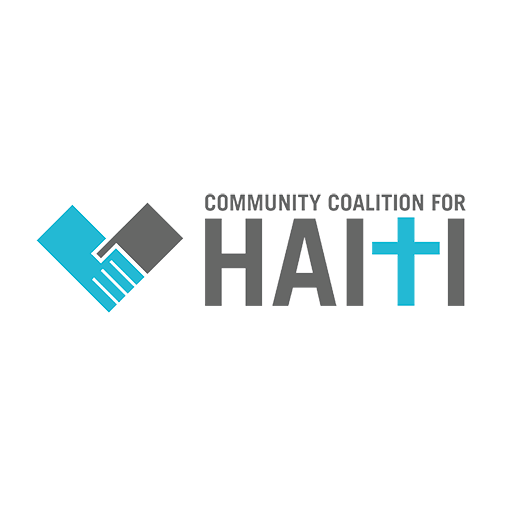If you’ve seen anything in the news lately about Haiti, it’s likely been bad.
Ever since Haiti’s president was assassinated in July 2021 (and really even before then), the traditional structures of Haitian society have been crumbling. Political power struggles and extreme gang violence have people frustrated, weary and often fearful to leave their homes. Rampant inflation has devalued the national currency to the extreme. Fuel, food and other essential goods are scarce – and extremely expensive when they are available. The movement of people, goods and services is often paralyzed for days or weeks at a time. This past fall saw nearly three months with schools, government institutions and most businesses closed. Streets that are usually bustling with pedestrians, vendors and vehicle traffic were eerily empty. As of early January 2023, not a single democratically elected official remains in office in Haiti. Recently, a brutal string of gang attacks against the National Police force fueled a new surge of protests and outrage. Neighboring Caribbean nations have indicated their intent to fortify support for the police, but many wonder if that will be enough.
Indeed, these headlines coming out of Haiti might be bad enough to make you lose faith – if that’s all you see. But there are also good things happening in Haiti. In 2022 alone, thousands of people were served through the loving ministries of the Community Coalition of Haiti (CCH). You helped make that possible. Thank you. If you missed the release of our 2022 Annual Report last week, which details some of those successes, check it out here.
In an effort to stay even better connected with you throughout the year, I’m trying out a new Monthly Digest email. My intention is to give you brief updates on what’s been happening that month and also share links to relevant articles, announcements or other headlines.
Quick updates from Jacmel:
- The CCH Clinics are full these days, and we’re seeing an uptick in the number of patients overall – including new patients. The local, public Hospital St Michel is “open” after several months of being closed, but doctors, supplies, medicines and even electricity are hard to find there. People are seeking out CCH, thanks to word of mouth and our reputation of treating people with dignity and respect.
- All eleven (11) of CCH’s partner schools remain open. Student numbers were increasing slowly each week as more families returned to school but appear to be leveling out. CCH Partner School EMEVO reports more than 250 students this year! Amen!
- Schools are still trying to make up for time lost last fall when they were closed for 12 weeks. Student exams that are typically held around the Christmas holidays were held earlier this month. That felt quick, but the school year has not been officially extended at all, so the calendar remains quite compact.
- Wellness checks (i.e., annual physicals) were provided to ____ students across three rural schools in late January / early February. Of those kids, 100 were referred to the CCH Clinics for additional services. School Nurses in these schools are invaluable for providing consistent support to students and their families and flagging common health challenges and concerns in the communities we serve.
- Just last week CCH hosted a community leadership training on Project Development – a topic requested by community leaders. A total of 28 men and women gathered together with CCH Community Development Liaisons and a local speaker to learn more about how to design, communicate and seek out partnerships for projects that improve the well-being of their communities. The all-day training was very participatory and will hopefully bear fruit in this new year! This training (see photo below) underscores CCH’s consistent reminders to partners that we want to better understand what we can do together, that we could not do alone.

Links that might be of interest:
- This recent article from The New Humanitarian summarizes the current situation in Port Au Prince and expanding outward from the gang-ravaged capital. Although we remain very grateful that day-to-day life in Jacmel isn’t “as bad,” there are reminders everyday and everywhere that things could change at any moment. The stress and anguish of the difficult choices that people must make almost daily is shared by ALL Haitians, even those who don’t live amidst the most violent and dramatic gang warfare. As stated in this article: “…the situation is so catastrophic for Haitians that they think first about their survival,” Cricboom said. “Their first concern is to be able to work, to eat and to have some resources. Insecurity is the number one issue.”
- Here’s more insight into the discussions and pledges made during the recent CARICOM meeting. Stopping short of sending personnel, many Caribbean countries have pledged support to strengthen Haiti’s National Police force.
- Finally, you’ve likely heard about the new visa program available to Haitians that wish to come to the US. As you can imagine, this is causing a chaotic rush in Haiti by men, women and children who desire safety. The requirement of a sponsor in the US, who pledges housing, financial and other means of support will be the primary obstacle for most. Nevertheless, the cost of passports in Haiti has risen dramatically as people try their best to prepare for what they hope may one day be possible for them. Near- and longer-term immigration challenges remain a hot button issue in both Haiti and the US.
Thank you for your steadfast support of CCH in so many different ways. The work that we do – in collaboration with so many others – would not be possible without your engagement.




